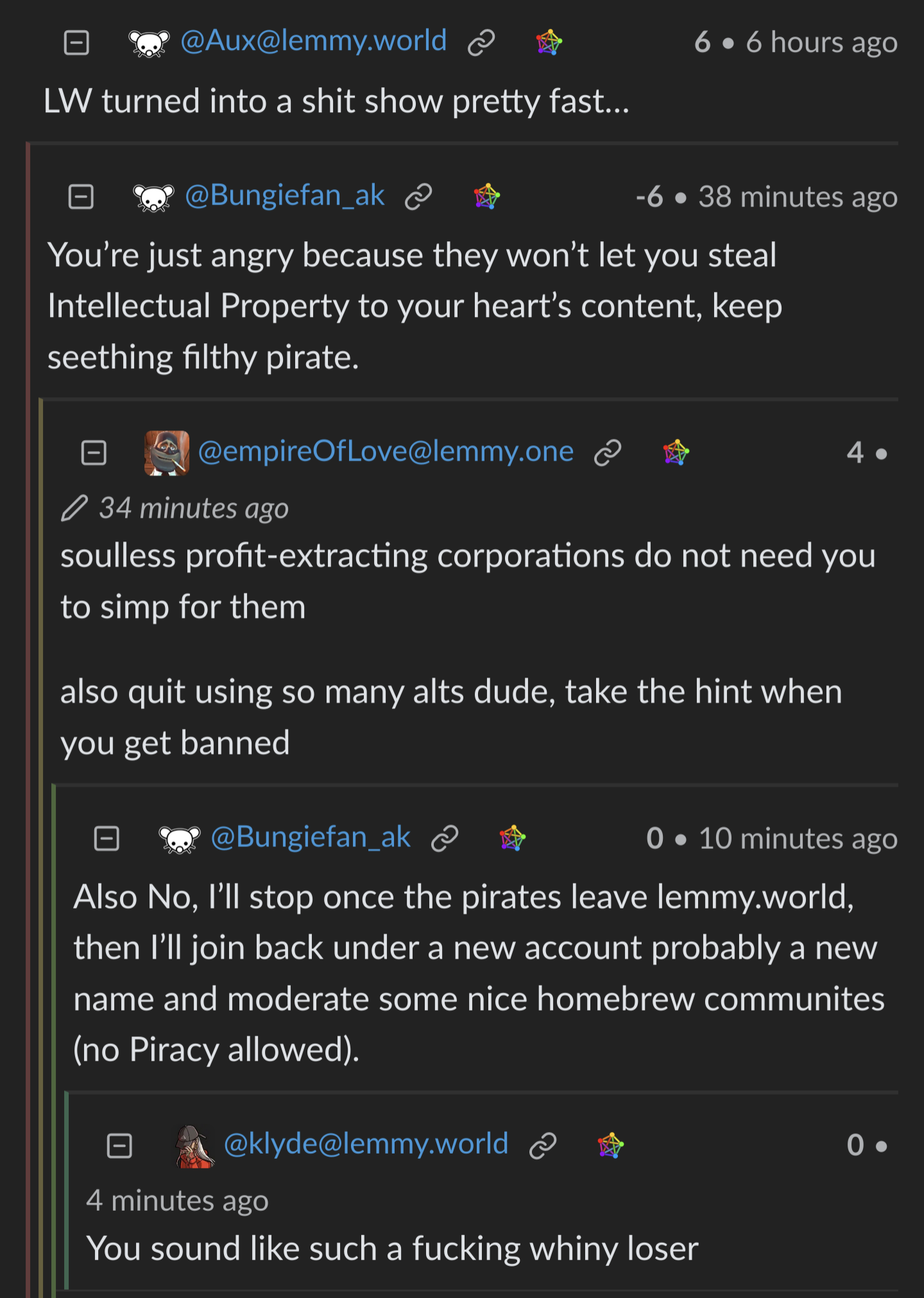this post was submitted on 15 Aug 2023
1168 points (94.5% liked)
Piracy: ꜱᴀɪʟ ᴛʜᴇ ʜɪɢʜ ꜱᴇᴀꜱ
64997 readers
268 users here now
⚓ Dedicated to the discussion of digital piracy, including ethical problems and legal advancements.
Rules • Full Version
1. Posts must be related to the discussion of digital piracy
2. Don't request invites, trade, sell, or self-promote
3. Don't request or link to specific pirated titles, including DMs
4. Don't submit low-quality posts, be entitled, or harass others
Loot, Pillage, & Plunder
📜 c/Piracy Wiki (Community Edition):
🏴☠️ Other communities
FUCK ADOBE!
Torrenting/P2P:
- !seedboxes@lemmy.dbzer0.com
- !trackers@lemmy.dbzer0.com
- !qbittorrent@lemmy.dbzer0.com
- !libretorrent@lemmy.dbzer0.com
- !soulseek@lemmy.dbzer0.com
Gaming:
- !steamdeckpirates@lemmy.dbzer0.com
- !newyuzupiracy@lemmy.dbzer0.com
- !switchpirates@lemmy.dbzer0.com
- !3dspiracy@lemmy.dbzer0.com
- !retropirates@lemmy.dbzer0.com
💰 Please help cover server costs.
 |
 |
|---|---|
| Ko-fi | Liberapay |
founded 2 years ago
MODERATORS
you are viewing a single comment's thread
view the rest of the comments
view the rest of the comments


I believe we are reffering to two different, but related things.
As i understand your comment, you are reffering to "the platform is responsible for what the users upload to it", or rather whether they are responsible and i am reffering to "(eg.) Torrent sites don't host copyrighted content, they only link to it".
My knowledge about the latter is from many years ago, so i might be wholly or partly wrong.
The former i think is a really interesting balancing act, since i believe that huge platforms that earns billions on hosting user content should be forced to use some of that profit to remove dangerous content, but if that obligation was put on small platforms like Lemmy instances or even the initial Twitter or Facebook, right when they lanched, they would be never be able to get up and running, which would cement the current Big Tech monopolies.
I am not very knowledgable about this specific topic, but i believe the European Unions attempts at solving this is distinguishing between the giants and everybody else, which again, is a great balancing act.
Thank you for correcting me. It makes a lot more sense that you can't just encode something to make it legal.